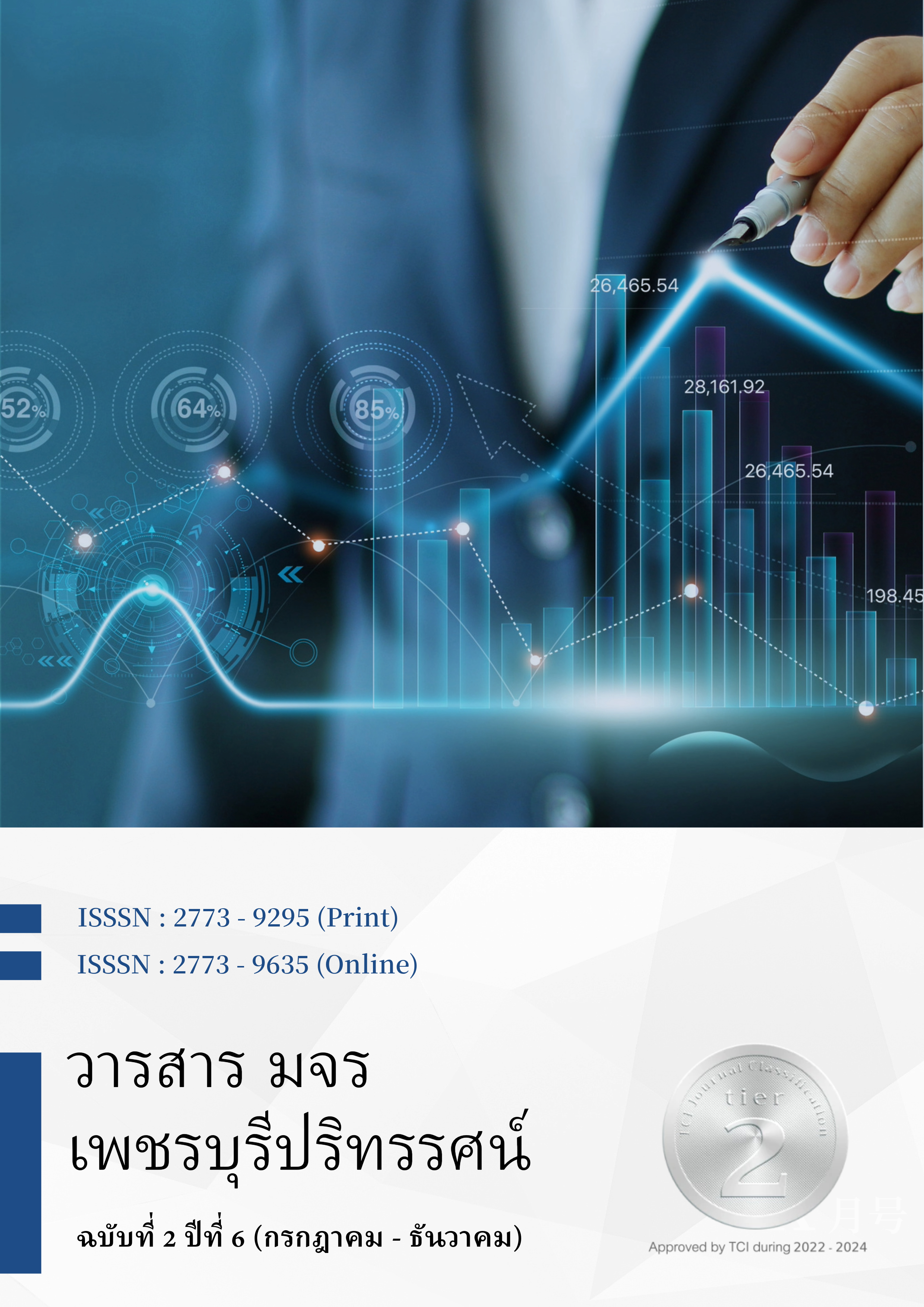Model of Immunization in the Way of Life of Students on the School in Factory Program at Rajamangala University of Technology Lanna
Main Article Content
Abstract
This research aims 1) to examine the problems of students in the factory school project, Rajamangala University of Technology, 2) to explore factors affecting students' immunity to problems, and 3) to suggest guidelines for students' immunity to problems in the factory school project, Rajamangala University of Technology Lanna that affects student graduation. This research is quantitative research. Data were collected by using a structured questionnaire from a sample group consisting of 77 students, mentors, and project responsible persons in the factory school project, and analyze the data by percentage, mean, standard deviation, and correlation coefficient. at the statistical significance level of 0.05
The findings revealed that:
1) Problems of students in the factory school project, Rajamangala University of Technology Lanna affecting students' graduation consisted of (1) mentors, such as inadequate numbers of mentor teachers or unqualified mentors; (2) income from factor, such as receiving allowances that are insufficient for living or not receiving salary on time every month, and (3) occupational security, such as the need to work in the workplace where they practice or being relocated to work without reason.
2) Factors affecting students' immunity to problems consist of being aware of the policy of the establishment, good relationship with supervisors, good relationship with colleagues, commitment to work, life after work and personal financial management.
Article Details

This work is licensed under a Creative Commons Attribution-NonCommercial-NoDerivatives 4.0 International License.
References
สำนักงานคณะกรรมการการอุดมศึกษา. 2559. ระบบนวัตกรรมของประเทศที่สัมพันธ์โดยตรงกับการสร้างความรู้. วารสารวิชาการคณะมนุษยศาสตร์และสังคมศาสตร์. 227 – 248.
มทร.ล้านนา. (2559, มิถุนายน 29). Retrieved from https://www.college.rmutl.ac.th/news/1178-%E0%B9%82%E0%B8%A3%E0%B8%87%E0%B9%80%E0%B8%A3%E0%B8%B5%E0%B8%A2%E0%B8%99%E0%B9%82%E0%B8%A3%E0%B8%87%E0%B8%87%E0%B8%B2%E0%B8%99.
มาณี ไชยธีรานุวัฒศิริ. 2560. โครงการบูรณาการการเรียนรู้กับการทำงาน (Work-integrated Learning: WiL). วารสารวิชาการคณะวิทยาการจัดการ มหาวิทยาลัยราชภัฏมหาสารคาม. 2(3), 97 – 102.
มาณี ไชยธีรานุวัฒศิริ. 2562. การพัฒนาระบบการศึกษาให้เหมาะสมกับความต้องการของภาดอุตสาหกรรม. รายงานการวิจัย. มหาวิทยาลัยรามคำแหง.
พาสนา จุลรัตน์. 2543. การจัดการเรียนรู้สำหรับผู้เรียนในยุค Thailand 4.0. กรุงเทพฯ : ทบวงมหาวิทยาลัย.
ภคมน โภคะธีรกุล. 2560. ผลกระทบจากการทำงานพิเศษนอกเวลาเรียน ของนักศึกษามหาวิทยาลัยในจังหวัดนครปฐม. วารสารวิชาการ การจัดการภาครัฐและเอกชน 2(3).
ภรภัทร จุฑากูร. 2561. รมว.แรงงาน สั่งหางานให้ นร.-นศ.ทำพาร์ทไทม์. [ออนไลน์] ได้จาก: https://www.thaihealth.or.th/Content/40220
Smart Service. (2566, มกราคม 18). Retrieved from https://www.smart2015.co.th/wil-%E0%B9%82%E0%B8%A3%E0%B8%87%E0%B9%80%E0%B8%A3%E0%B8%B5%E0%B8%A2%E0%B8%99%E0%B9%83%E0%B8%99%E0%B9%82%E0%B8%A3%E0%B8%87%E0%B8%87%E0%B8%B2%E0%B8%99/.
Yamane, T. (1973). Yamane, Taro. (1973), Statistics: An Introductory Analysis. . London: John Weather Hill, Inc.


